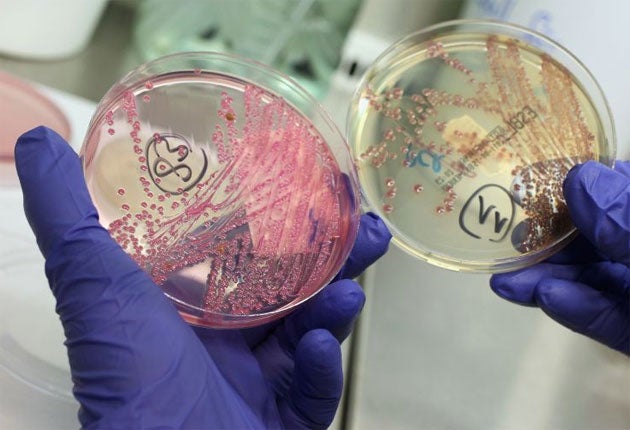E coli infection killed two children from same family, health officials reveal
Youngsters from Leicestershire die after developing complications affecting their kidneys

Your support helps us to tell the story
From reproductive rights to climate change to Big Tech, The Independent is on the ground when the story is developing. Whether it's investigating the financials of Elon Musk's pro-Trump PAC or producing our latest documentary, 'The A Word', which shines a light on the American women fighting for reproductive rights, we know how important it is to parse out the facts from the messaging.
At such a critical moment in US history, we need reporters on the ground. Your donation allows us to keep sending journalists to speak to both sides of the story.
The Independent is trusted by Americans across the entire political spectrum. And unlike many other quality news outlets, we choose not to lock Americans out of our reporting and analysis with paywalls. We believe quality journalism should be available to everyone, paid for by those who can afford it.
Your support makes all the difference.Two children from the same family have died after contracting E coli, officials at Public Health England (PHE) have revealed.
The health body has not confirmed the ages of the children, but they are believed to have lived in the Charnwood area of Leicestershire.
Officials do not yet know the cause of the E coli infections.
PHE East Midlands said it had been working closely with environmental health colleagues at Charnwood Borough Council to investigate and prevent the risk of any wider outbreak.
The body said both children died after developing haemolytic uraemic syndrome (HUS), a disease characterised by kidney failure caused by E coli and similar infections.
“E coli is an infection that causes a spectrum of illness ranging from mild through to severe bloody diarrhoea, mostly without fever,” said Dr Lauren Ahyow, consultant in communicable disease control at PHE East Midlands.
“Sometimes the infection can cause a condition called haemolytic uraemic syndrome, which affects the kidneys and can be very serious. Young children and elderly people are more prone to development of complications associated with E coli.
“E coli can be acquired through a number of routes including contaminated food, contact with farm animals and infected water. PHE are working with partners to investigate further to try and determine a source of infection.
“People can be reassured E coli is a relatively rare infection.”
Hundreds of E coli cases occur in the UK each year, but deadly strains of the infection are rare.
In 2016 an outbreak of the E coli 0157 strain linked to unwashed mixed salad leaves affected more than 150 people across Britain. Two people died during the outbreak of the bug, and 62 others were hospitalised.
The PHE said good hand hygiene and the “supervised” hand hygiene of small children is essential to minimise the risk of developing the infection.
The health body said its thoughts were with the family of the two children.